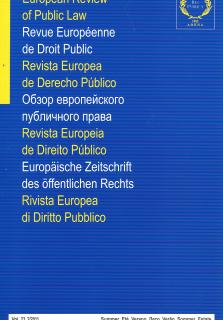
A conflict between the Russian Constitutional Court and the European Court of Human Rights and the ensuing debate on the scope of intervention of international courts in the Russian legal order was the most remarkable topic of the discussions in the Russian constitutional law in 2010. The discussion was incited by the case of Konstantin Markin, heard by the Russian Constitutional Court and the ECtHR which made different decisions. The defense of the Russian State sovereignty and the self-dependence of the Constitutional Court ended up in a federal bill which gave to the Constitutional Court the power to decide if the Russian Constitution allows to execute a decision of the ECtHR or not. The Constitutional Court itself was reformed in 2010, and the reform concerned its organization and the way of proceeding cases. Since 2010, Russia has become a member of the Customs Union. This membership influenced the constitutional law system, creating supranational sources of law, unknown to the Russian lawyers before. The new project of Russian innovations - the Skolkovo project - raised in the Russian constitutional law problems of delegating State powers to the private entities. “Blue Buckets” action was the most remarkable sign of political participation. The system of government changed with the creation of a new federal body - the Investigation Committee. The Russian federal system was also concerned with the discretional Moscow’s mayor retirement and the creation of a new federal district.





















